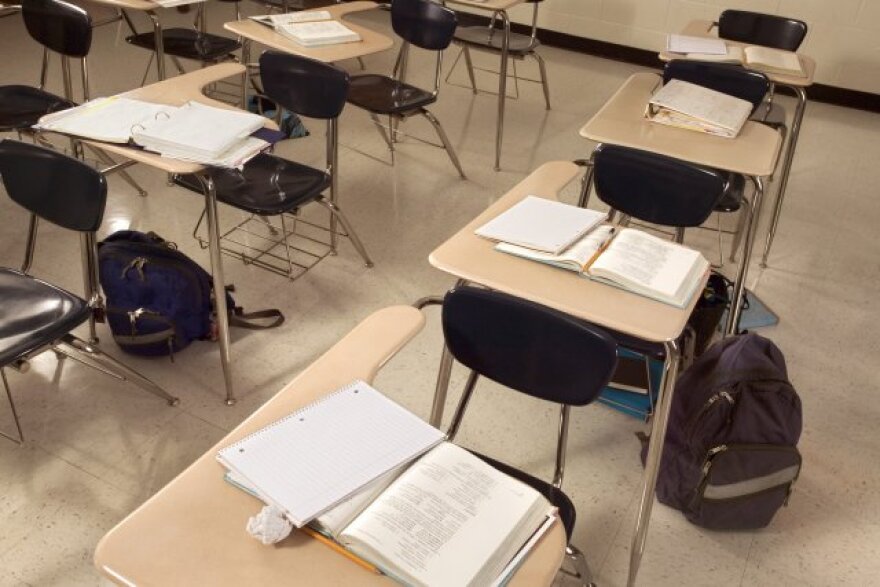On Monday, Gov. Walker released a proposed expansion of the Wisconsin Choice or voucher program, and his plan includes the creation of a school voucher program for students with special needs. A group called Stop Special Needs Vouchers Wisconsin announced Monday that it will to fight the proposal. As WUWM’s LaToya Dennis reports, there are strong opinions on both sides, just as there have been with the state’s flagship voucher or choice program.
Melissa Stoltz says for her, the issue of special needs vouchers is personal.
“I have a daughter who’s two-and-a-half. She has Down Syndrome, and she’s not in public schools right now but she will start in the fall. So my involvement is inspired primarily by making sure that public schools are well funded and will have programs available for her when she starts this fall and then on into her school career,” Stoltz says.
Under a bill introduced last year, the state would transfer up to $13,400 from the public system to the private school a student with special needs would rather attend. The money is supposed to help the private school meet the student’s unique needs. Wisconsin would cap enrollment at five percent of special needs students statewide – or just over 6,000 kids.
While the Assembly passed the legislation, the Senate did not vote.
Stoltz says she and other parents watched closely. Then in December, they decided to form a group – Stop Special Needs Vouchers Wisconsin, because they got word the same legislation could reappear this year.
“Our base is educated. We know what the legislation might look like so that when it does either come through the budget or if it’s proposed on the floor, we will have people ready to voice their opinion,” Stolz says.
Stolz says she’s also concerned that children with disabilities would lose certain educational rights if they enroll in a private school ill-equipped to handle their needs.
Lisa Pugh of the group Disability Rights Wisconsin says only public schools guarantee those rights.
“We’re talking about rights to a certain quality of programming that’s evidence based, rights to just question the way that their child’s programming is being implemented. And I think some of the states where this idea is modeled after, for instance, special needs vouchers in Florida and Ohio, we’ve seen a lot of fraud, we’ve seen a lot of families being taken advantage of, we have see abuse of children, abuse of tax payer dollars,” Pugh says.
At the same time, Pugh says it becomes increasingly difficult for the public districts to meet their legal obligation to serve all students.
“We’re dealing with school districts that are already making cuts to their and kind of working on a shoe string here. What happens when we pull additional funds out of those school districts,” Pugh says.
“Well I think we have the question in the wrong way. I think the consideration should be given to the parents that if they want to get out, they should be able to.”
Brian Pleva is Wisconsin spokesman for the American Federation for Children. The Washington D.C. based group insists public funding should follow the families’ wishes about what they feel is best for their children.
“We believe that parents of special needs children deserve to own complete power over where and how their children are educated,” Pleva says.
Pleva says opponents of special needs vouchers ignore the fact that supporters made major changes to the plan last year, to address concerns about participating private schools.
“They would be required to implement the individualized education plan and report on how it’s being implemented. In fact, if they falsify they would be kicked out of the program by the department of public instruction,” Pleva says.
Pleva says he has not heard anything about lawmakers reintroducing the legislation this year in Wisconsin, but hopes they do.


